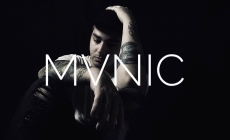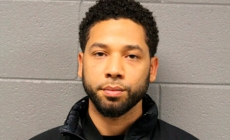 Whether you’re just starting out, or have been around for a number of years, there are two very important things that make your music act valuable: your name and your music. Protecting a band or performer’s name is done through
Whether you’re just starting out, or have been around for a number of years, there are two very important things that make your music act valuable: your name and your music. Protecting a band or performer’s name is done through
trademark, and protecting the music is through copyright. This article briefly covers copyright law and how it applies to music acts- I’ll talk more about trademark in a future article. I am an attorney; so I have to give a disclaimer that this article is to be used for information only, and if you have specific questions regarding your situation, please consult with an attorney.
What is copyright?
The legal definition of copyright is any “expression in a tangible and fixed medium.” That basically means anything you can see or hear that someone created. It can also apply to that you need a device to access, such as something recorded on a CD or a computer disk. When you write or record a song, copyright automatically applies- without any further action needed on
your part. There’s no need to file anything, have people witness it, or mail it to anyone. Copyright comes into being automatically.
What does copyright do for me?
Copyright prevents anyone else from reproducing your copyrighted work, in its original form or in other forms. If you record a song on CD, then you also have the right to put it on tape, over the radio, on MP3, on DVD, etc. You also get the rights to make different versions, changing it around a little bit, performing it differently, etc.
How can I enforce my copyright?
Although you do not have to have a registered copyright to enforce your rights, it makes it much easier. With a federally registered copyright, you automatically have access to federal courts for your lawsuit, it is easier to get damage awards, and basically makes the entire process easier. Filing a copyright application is pretty easy, and the filing fee is only $30. You can download the forms yourself from the Copyright Office [www.copyright.gov]. My law firm can assist preparing and filing the application for you, and it usually runs around $300-400. It usually takes 3-6 months to get a copyright registered. You can proceed in a court case without a formally registered copyright, however the requirements are trickier and potentially more time consuming.
Someone’s copying me, but I don’t have a registered copyright!
If you’re thinking of suing someone over a copyright issue, and you do not have a registered copyright, you can always obtain one quicker. With
payment of an additional fee (currently $580) the Copyright Office will process your application in about 1-2 weeks.
Is copyright really important?
Yes, it is. Just ask Madonna. She has sued Mary J. Blige, Eve and Dr. Dre over Blige’s song “NoToday.” http://www.allhiphop.com/hiphopnews/?ID=3974. Madonna also has been sued herself, most recently over her song “Frozen.” She lost that case; even through she was found to have copied only 4 bars of the other song (typically songs are 90-100 bars).
http://www.plagiarismtoday.com/?p=126. Be careful how close you sound like another song. George Harrison was found to have “subconsciously copied” another song. He eventually bought the rights to the song he copied, so everything worked out for him. [http://abbeyrd.best.vwh.net/mysweet.htm]. Some guy recently sued Britney Spears over the song “Sometimes.” He claimed to have written the song a long time ago, and used a “poor man’s copyright.” That’s when you mail something to yourself via certified mail. In no situation will this protect any right- copyright, trademark or patent. You will only get hurt by doing that, and the guy had his suit thrown out. A simple filing before the Copyright Office, and he’d be protected.
If you’re sampling other artists, make sure to get their permission before putting your song out. You may need to pay them a royalty, but that’s
better than using their song without their permission. Vanilla Ice got in trouble for using “Under Pressure” for his song “Ice Ice Baby,” and the
Verve Pipe got cleaned out over their use of a Rolling Stones song in “Bittersweet Symphony.” Taking care of your right up front, such as
protecting your songs and lyrics through copyright, and obtaining permission to use samples, can help you be a better, and more successful, performer later.
______________________________________
Owen Smigelski, Esq.
Skousen & Skousen
A Professional Corporation
12400 Wilshire Blvd., Suite 900
Los Angeles, CA 90025
Phone: (310) 277-0444
Facsimile: (310) 782-9579


![Travis Scott Releases His First Single of 2019 [VIDEO]](https://www.guttaworld.com/wp-content/uploads/2019/10/Travis-Scott-performs-live-in-2019-230x140.jpg)









